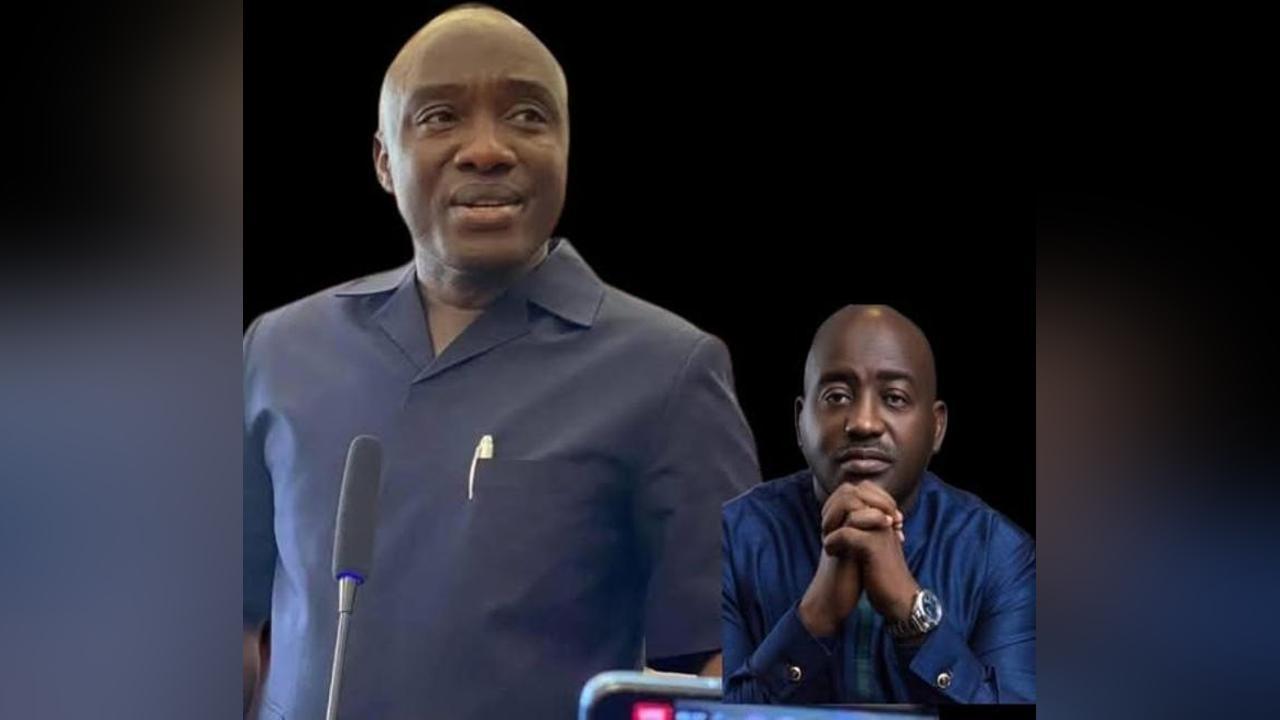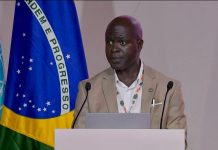Africa-Press – Liberia. Bong County once again finds itself at the center of a national debate, one that goes beyond politics and strikes at the heart of governance, accountability, and the people’s right to development.
The ongoing dispute between Senator Prince K. Moye and Representative Musa Hassan Bility over China Union’s corporate social responsibility (CSR) obligations has revealed a deeper structural problem: too many decisions that impact ordinary citizens are made behind closed doors.
Former Bong County District #3 lawmaker, Atty. George Sylvester Mulbah has raised a critical alarm, one rooted in both law and principle. His concerns raise a defining question the public has every right to ask: Who is legally responsible for the Social Development Fund (SDF) owed to Bong County under the China Union concession?
Senator Moye on Spoon Talk strongly rejected allegations that he and other caucus members signed a resolution waiving Bong County’s rightful benefit.
On the other hand, Representative Bility insists that his company, Strimex, took over management of China Union’s storage tank under a government-approved arrangement that generated more than US$150 million in national revenue.
By Mulbah’s interpretation, supported by long-standing concession principles, whoever assumes China Union’s assets must also assume its liabilities, including unpaid obligations to affected communities.
What is most troubling, however, is not the blame game unfolding in public. It is the absence of clear, accessible documentation. Liberia’s history has been marred by concession agreements negotiated in secrecy, funds unaccounted for, and communities left in the dark. Statements, no matter how passionately delivered, cannot substitute for facts. The people deserve documentation, not political theatrics.
If there exists a caucus resolution waiving Bong County’s SDF, let it be published.
If the storage tank agreement legally transfers CSR obligations to Strimex, then make that document available.
If China Union remains solely liable under the Mineral Development Agreement, then let the government state so unambiguously.
The people of Bong County are not bystanders. They are the intended beneficiaries of these social development funds meant for clinics, schools, roads, water systems, and youth empowerment. While leaders clash publicly, those communities continue to wait for basic services that have been long promised and rarely delivered.
The Constitution and statutory laws are clear: no caucus or subset of legislators has the authority to suspend, repeal, or override a national law. Any attempt to do so through informal resolutions is not only unlawful but also a direct violation of public trust.
Liberia cannot continue down a path where concessionaires operate without proper oversight, while communities bear the cost of underdevelopment. This controversy must serve as a turning point. Bong County and the nation deserve full transparency, not partial narratives shaped by political convenience.
Until every relevant document is released and scrutinized, and until an independent review establishes where responsibility truly rests, the People’s Social Development Fund remains hostage to political maneuvering and administrative opacity.
Transparency is not a privilege. It is a right, and the people of Bong County must insist on nothing less.
For More News And Analysis About Liberia Follow Africa-Press






